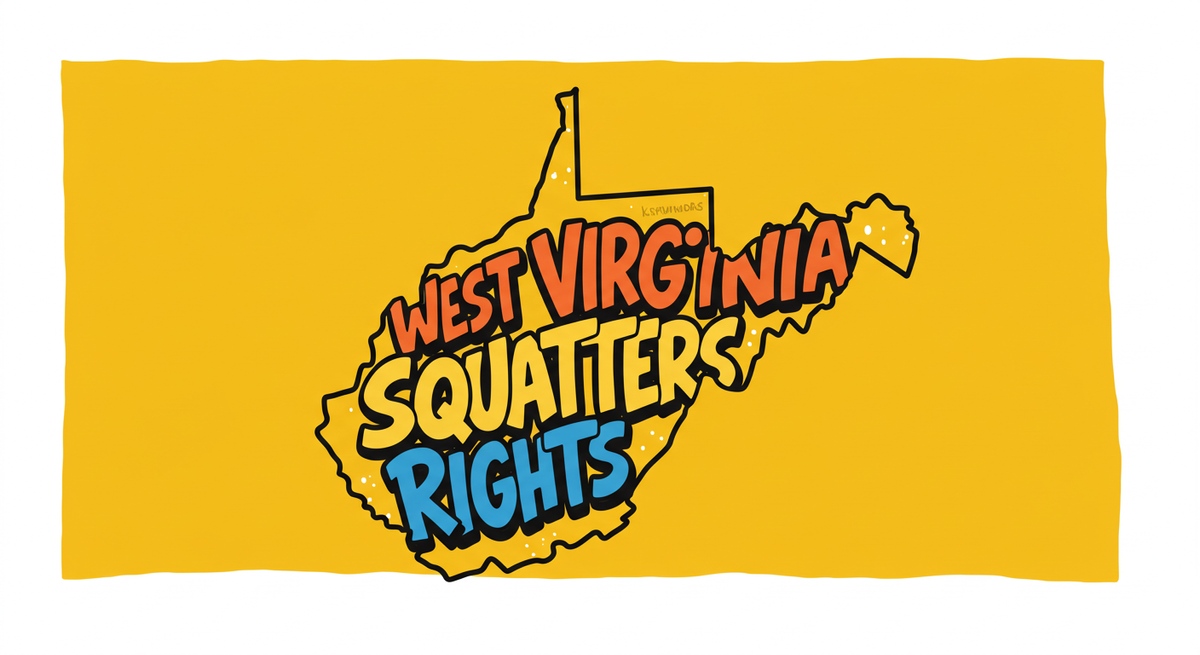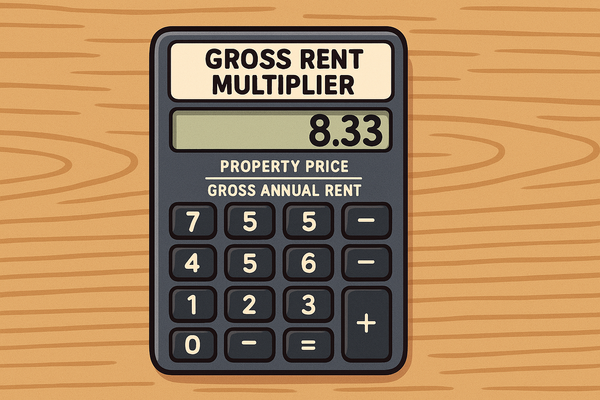West Virginia Squatters Rights Guide: Understanding Adverse Possession Laws
In West Virginia, adverse possession requires continuous occupation of property for 10 years (5 years with color of title) under the state's statute of limitations for land recovery actions

Despite a deep history of successful squatters rights claims such as State v. Lambert (1985) and Robinette v. Kaufmann (1991), West Virginia has dramatically pivoted in its approach to property occupation disputes with groundbreaking 2024 legislation that explicitly criminalizes squatting, removing these cases from civil courts and empowering law enforcement to intervene immediately as a criminal trespass matter.
This seismic shift in legal classification—making West Virginia one of only two states alongside Florida to treat squatting as a criminal rather than civil issue—represents a significant victory for property rights advocates, yet doesn't eliminate the fundamental legal pathway for adverse possession claims.
The 10-year statutory period (reduced to just 5 years with "color of title") remains intact, creating a fascinating legal paradox where unauthorized occupants could face criminal penalties in the short term while potentially gaining legitimate ownership rights if they manage to meet all requirements over the long term—a tension between immediate enforcement and historical property doctrine that property owners must navigate carefully.
Introduction to Squatters' Rights in West Virginia
- Squatters in West Virginia are individuals who occupy property without legal ownership or legal rights, while trespassers are those who enter property unlawfully without intent to establish residence.
- Adverse possession in West Virginia is a legal doctrine that allows someone who occupies land without legal title to eventually gain ownership rights after a specific statutory period.
- Property owners must understand these laws to protect their real estate investments from potential loss through adverse possession claims.
- Historically, adverse possession laws were designed to encourage productive use of land and prevent property abandonment by absentee owners.
Squatter Snippet: Real Case from West Virginia
In 1985, West Virginia witnessed one of its most shocking adverse possession cases, known as State v. Lambert. In this landmark case, a squatter occupied rural property continuously for over 15 years. What makes this case particularly noteworthy is that the West Virginia Supreme Court ultimately ruled in the squatter's favor despite the fact they had never paid a single penny in property taxes on the land.
The court determined that "continuous 15-year occupancy itself was sufficient grounds to claim ownership rights," establishing that tax payment is not a prerequisite for adverse possession in West Virginia. This case demonstrates why property owners must understand and actively protect against potential adverse possession claims.
Key Timeline: Statutory Period in West Virginia
- Required occupation period: In West Virginia, adverse possession requires continuous occupation of property for 10 years under the state's statute of limitations for land recovery actions
- Continuous possession requirement: Occupation without significant gaps
- Comparison with neighboring states:
- Virginia: 15 years
- Other neighboring states: Similar or shorter timeframes
- Timeline exceptions:
- Reduced to 5 years if the squatter has "color of title" (a document appearing to give ownership)
- Military service, incarceration, and legal incompetence may affect timelines
CHART: Adverse Possession Timeline Comparison
| State | Required Years | Special Conditions |
|---|---|---|
| West Virginia | 10 years | 5 years with color of title |
| Virginia | 15 years | No tax payment required |
| Other Neighboring States | Various | Conditions vary by state |
Quick Guide for Property Owners
West Virginia property owners face a unique legal landscape when it comes to squatters. The State v. Lambert case established the surprising precedent that squatters can claim ownership without paying property taxes if they meet all other adverse possession criteria. This makes West Virginia one of the few states where tax payment isn't mandatory for adverse possession claims.
Additionally, recent legislative changes have fundamentally transformed how the state handles squatters, with West Virginia becoming one of only two states (alongside Florida) to treat squatting as a criminal rather than civil matter.
- Know your timeline: Squatters can claim rights after 10 years of continuous occupation (5 years with color of title)
- Documentation matters: Keep property records, tax receipts, and inspection logs
- Regular monitoring required: Vacant properties are most vulnerable
- Legal obligation: Self-help eviction methods remain inadvisable despite recent law changes
- Act quickly: The longer squatters remain, the stronger their potential claim
- Proper notices: Follow legal procedures when removing unauthorized occupants
Prevention: Protecting Your Property
West Virginia has recently strengthened property owners' rights against squatters with legislation explicitly classifying squatting as criminal trespass rather than a tenancy situation. This significant legal change took effect in June 2024 and allows property owners to seek law enforcement assistance instead of pursuing lengthy civil eviction procedures.
Data shows that rural properties in West Virginia are particularly vulnerable to adverse possession claims due to less defined boundaries and more challenging monitoring conditions. West Virginia courts evaluate security measures and property monitoring evidence when considering adverse possession cases.
- Regular inspections:
- Visit property at least quarterly
- Document each visit with dated photos/notes
- Effective security measures:
- Secure all entry points with commercial-grade locks
- Consider alarm systems with cameras
- Install motion-activated lighting
- Clear signage:
- Post "No Trespassing" signs visibly
- Mark property boundaries clearly
- Property management options:
- Hire professional management for vacant properties
- Consider rental options for long-term vacancies
- Documentation practices:
- Keep tax payment records
- Maintain utility connections
- Take dated photographs regularly
CHART: Property Risk Assessment Matrix
| Property Type | Risk Level | Recommended Prevention | Estimated Cost |
|---|---|---|---|
| Vacant Land | High | Regular boundary marking, quarterly inspections | $-$$ |
| Abandoned Building | High | Security system, regular inspections, property management | $$-$$$ |
| Seasonal Property | Medium | Security system, neighbor monitoring arrangement | $$-$$$ |
| Investment Property | Medium-Low | Professional property management, tenant screening | $$-$$$ |
Removing Squatters: Step-by-Step Process
West Virginia's approach to squatter removal has fundamentally changed with the passage of House Bill 4940, which took effect in June 2024. This groundbreaking legislation explicitly classifies squatting as criminal trespass rather than a tenancy situation.
The law states unequivocally: "Squatters are not considered tenants for purposes of this code. Squatting is synonymous with trespass, and is a criminal act under §61-3B-2 or §61-3B-3 of this Code."
This reclassification means property owners can now contact law enforcement to handle squatters as criminal trespassers rather than pursuing lengthy civil eviction processes. West Virginia Code §55-2-1 governs the statute of limitations for land recovery actions.
- Document the situation:
- Take photos/video of occupation
- Gather ownership documents
- Contact law enforcement:
- Report the trespass/squatting situation
- Provide proof of ownership
- If needed, file appropriate legal complaint:
- Wrongful detainer action in West Virginia
- Include all required documentation
- Attend court hearing if required
- If successful, obtain order of restitution/eviction
- Sheriff enforces removal, not property owner
- What NOT to do:
- Do not change locks yourself
- Do not shut off utilities
- Do not remove squatter's belongings
- Do not threaten or intimidate
- Do not use physical force
- Timeline expectations:
- Previously: 2-6 months for full eviction process
- Current: Potentially days or weeks with new trespass classification
- Pending legislation may further expedite process
CHART: Eviction Process Timeline
With West Virginia's recent reclassification of squatting as criminal trespass, the removal process has been significantly streamlined. Prior to this legislative change, West Virginia's eviction process was already considered unusually fast compared to other states.
The eviction process did not require prior notice before filing, and hearings were often scheduled only days after the summons was served. The new law stating "No Court of this state shall require the utilization of eviction, or a similar procedure... by an owner in any instance involving the removal of a squatter from possession of a property" has fundamentally changed the approach to removing unauthorized occupants.
[Discovery of Squatter] → [Documentation: 1-2 days] → [Contact Law Enforcement: 1 day] →
[If needed, Court Filing: 1 day] → [Waiting for Hearing: Days to weeks] → [Court Hearing: 1 day] →
[If successful, Sheriff Enforcement: Few days] → [Property Returned]
Total estimated timeline: Days to weeks (significantly faster than pre-2024 process)
Legal Requirements for Adverse Possession
West Virginia courts apply the "OCEAN" criteria (Open, Continuous, Exclusive, Adverse/Hostile, Notorious) when evaluating adverse possession claims.
The West Virginia Supreme Court has consistently upheld these requirements, as demonstrated in cases like Brown v. Gobble (1996) and Soman v. Murphy Fabrication and Erection Co. (1977).
The court requires "actual, visible, exclusive, hostile, and continued possession" of the property. Importantly, unlike some states, West Virginia does not require squatters to pay property taxes to establish a valid adverse possession claim, as confirmed in the landmark State v. Lambert (1985) case and reinforced in Robinette v. Kaufmann (1991).
- Hostile Claim
- In West Virginia, "hostile" means occupation without the legal owner's permission
- The squatter's use must challenge the owner's rights
- Permission or consent from the owner invalidates this element
- Actual Possession
- Physical occupation of the property is required
- Courts look for evidence of use consistent with ownership
- Must demonstrate actual, physical control over the property
- Open and Notorious Possession
- Occupation must be visible and apparent to anyone
- The community, especially the legal owner, should be aware
- Hidden or concealed occupation doesn't qualify
- Exclusive Possession
- The squatter must possess the property for themselves alone
- Cannot share possession with strangers, the legal owner, or the public
- Must exercise control similar to how a legitimate owner would
- Continuous Possession
- Uninterrupted occupation for the entire 10-year statutory period
- Any significant gaps reset the adverse possession clock
- Temporary, brief absences may be permitted
CHART: Adverse Possession Requirements Matrix
| Requirement | Required in West Virginia? | Evidence Courts Accept | Common Pitfalls |
|---|---|---|---|
| Hostile Claim | Yes | Documentation showing no permission was granted | Having any form of consent from owner |
| Actual Possession | Yes | Evidence of residing, maintaining, or improving property | Sporadic or minimal use of property |
| Open & Notorious | Yes | Witness statements, visible improvements, utility bills | Hidden or concealed occupation |
| Exclusive | Yes | Evidence of preventing others from using property | Sharing property with others |
| Continuous | Yes | Documentation showing 10 years of uninterrupted occupation | Significant gaps in occupation |
Frequently Asked Questions
- "Can I remove squatters myself?"
- No, self-help eviction remains inadvisable despite recent law changes
- Contact law enforcement to handle criminal trespass
- "Do squatters have to pay property taxes?"
- No, West Virginia does not require tax payment for adverse possession claims
- Payment can strengthen a claim but is not mandatory
- "What's the difference between a squatter and a trespasser?"
- Trespassers: Short-term unauthorized presence
- Squatters: Ongoing occupation with potential adverse possession claim
- "Who should I contact first - police or sheriff?"
- Contact county sheriff rather than local police
- Sheriff has appropriate jurisdiction to remove squatters
- "Can squatters claim abandoned property?"
- Yes, if all adverse possession requirements are met
- Abandonment may actually strengthen their claim
- "How quickly can I evict a squatter?"
- With recent legislative changes, potentially days to weeks
- Much faster than the previous 2-6 month timeline
CHART: Decision Tree for Property Owners
West Virginia's specific laws regarding squatters have undergone significant change with the reclassification of squatting as criminal trespass rather than a civil tenancy matter. This creates a clear distinction between criminal trespass and civil adverse possession. West Virginia law enforcement now has specific protocols for handling unauthorized occupants, treating them as trespassers rather than potential tenants requiring eviction proceedings.
Discovered Someone on Your Property
├── Emergency/Dangerous Situation? → Yes → Call Police
│ └── No ↓
├── Recent Entry (Less than 24 hours)? → Yes → Call Police (Trespasser)
│ └── No ↓
├── Evidence of Established Occupation? → Yes → Contact Sheriff (Criminal Trespass)
│ └── No ↓
└── Uncertain Situation → Consult Attorney Before Taking Action
Recent Legislative Changes in West Virginia
West Virginia has enacted substantial changes to its treatment of squatters in recent years. On March 6, 2024, the state legislature passed House Bill 4940, which took effect in June 2024. This groundbreaking legislation explicitly classifies squatting as criminal trespass rather than a tenancy situation.
The law states unequivocally: "Squatters are not considered tenants for purposes of this code. Squatting is synonymous with trespass, and is a criminal act under §61-3B-2 or §61-3B-3 of this Code." This reclassification represents a significant departure from many states' approaches and creates a much more streamlined process for removing unauthorized occupants from properties.
- Recently Passed Laws:
- House Bill 4940: Passed March 6, 2024, this law explicitly defines squatting as criminal trespass
- Impact on property owners: Allows contact with law enforcement instead of civil eviction
- Effective date: June 2024
- Pending Legislation:
- Senate Bill 740 "Stop Squatters Act": Currently in Senate Judiciary Committee
- Proposed changes: Alternative remedy for removing unauthorized occupants, procedures for immediate removal by law enforcement, new criminal offenses for unlawful occupation
- Expected vote/implementation: Approximately 25% progression through legislative process as of March 20, 2025
- Legislative Trends:
- West Virginia is moving toward stronger property owner protections
- Part of national trend of states strengthening laws against squatters
State-Specific Considerations
- Color of Title in West Virginia:
- Definition: Document giving appearance of legal ownership (though invalid)
- Impact on statutory period: Reduces from 10 years to 5 years
- Documentation requirements: Must appear to be legitimate ownership document
- Burden of proof requirements:
- Squatter must prove all elements of adverse possession
- Evidence standards in West Virginia courts are strict
- Recent legal developments:
- Reclassification of squatting as criminal trespass
- Pending "Stop Squatters Act" legislation
- How West Virginia differs from neighboring states:
- 10-year statutory period (vs. 15 in Virginia)
- No tax payment requirement
- Criminal rather than civil classification of squatting
CHART: West Virginia vs. Neighboring States Comparison
| Factor | West Virginia | Virginia | Other Neighbors |
|---|---|---|---|
| Statutory Period | 10 years | 15 years | Various |
| Color of Title Impact | Reduces to 5 years | Varies | Varies |
| Tax Payment Required | No | Varies | Varies by state |
| Special Conditions | Criminal trespass classification | Civil matter | Typically civil |
| Strictness Rating | 4/5 | 3/5 | Varies |
Advanced Legal Process
- West Virginia courts strictly interpret adverse possession requirements
- Property tax payment is not required but can strengthen claims
- Recent legislation has significantly altered squatter removal procedures
- Eviction process was already considered unusually fast prior to recent changes
- Special consideration for "color of title" can reduce statutory period
Real-World Examples
- State v. Lambert (1985): Court upheld squatter's claim despite no tax payments
- Robinette v. Kaufmann (1991): Reinforced that tax payment is not required
- Brown v. Gobble (1996): Established six elements required for adverse possession
- Recent legislative response to growing concern about squatting incidents has resulted in laws passed that criminalize squatting. However, if someone still successfully squats at a property for the required time frames, they may still make a successful adverse possession claim.
Resources
- Current West Virginia Squatters Rights Laws:
- West Virginia Legislature
- West Virginia Code
- Last updated: June 2024 (with HB 4940)
- Recent/Pending Legislation:
- Senate Bill 740 "Stop Squatters Act"
- Bill status: In Senate Judiciary Committee (as of March 2025)
Legal Disclaimer
DISCLAIMER: The information provided in this guide is for general informational purposes only and should not be construed as legal advice on any subject matter. The content contained herein does not establish an attorney-client relationship.
This guide about West Virginia squatters' rights and adverse possession laws is intended to provide general information and should not be relied upon as legal advice. Laws and regulations regarding property rights, adverse possession, and eviction procedures vary by jurisdiction and may change over time. The information presented here may not reflect the most current legal developments or address your specific situation.
No reader should act or refrain from acting based on information in this guide without first seeking professional legal advice. Property owners dealing with squatters should consult with a qualified attorney licensed to practice in their jurisdiction for advice tailored to their particular circumstances.
The authors, publishers, and distributors of this guide expressly disclaim all liability in respect to actions taken or not taken based on any or all of the contents of this document. They shall not be responsible for any errors or omissions in this information or any consequences arising from its use.
This guide is provided "as is" without warranty of any kind, either express or implied, including but not limited to implied warranties of merchantability, fitness for a particular purpose, or non-infringement.
Copyright © 2025 LandlordDoc.com. All rights reserved.





